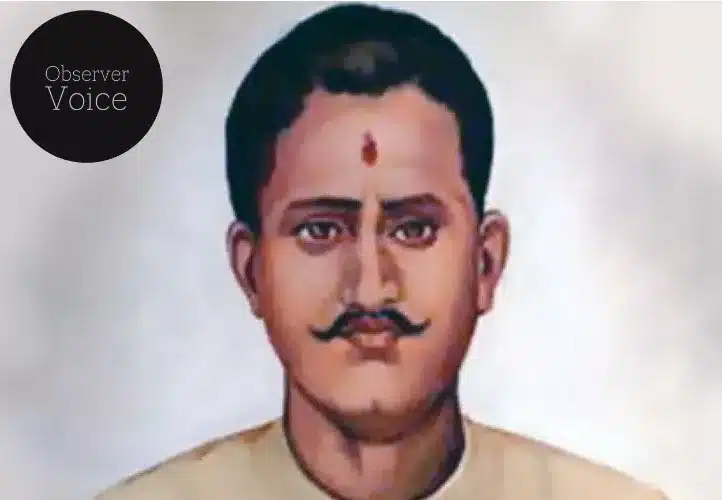Ram Prasad Bismil (11 June 1897 – 19 December 1927), was a great freedom fighter of India, poet, translator, polyglot, and a litterateur of a high order.
Early Life
Ram Prasad Bismil was born on 11 June 1897, in Madhya Pradesh, India. During his childhood, he was taught Hindi by his father and Urdu by a moulvi. He went to an English-language school, despite his dad’s disapproval, and also joined the Arya Samaj. Bismil was good at writing patriotic poetry.
He always wanted India to be a free country and dedicated himself to it. There were a lot of great freedom fighters on his team, including Ashfaqulla Khan, Chandrasekhar Azad, Bhagawati Charan, Rajguru, and others. He used to take advice from Swami Somadevji on religion and politics.
He became an ardent Brahmacharya follower after being inspired by it. He started volunteering for Shahjahanpur Seva Samithi. He published a pamphlet called ‘A Message to My Countrymen’ to get people’s attention.
At the age of 19, he joined a revolutionary group directed by Pandit Genda Lal Dixit after the death of Bhai Parmanand. Along with Dixit, Bismil mobilized youth from Etawah, Mainpuri, Agra, and Shahjahanpur for organizations like Matrivedi and Shivaji Samiti.
He started looting government treasuries to fund these organizations. Eventually, he became a revolutionary and a freedom fighter. He didn’t believe that non-violence could bring independence as Mahatma Gandhi did.
Along with Sachindra Nath Sanyal and Jadugopal Mukherjee, Bismil founded the Hindustan Republican Association. HRA was founded in 1924, and Bismil drafted its constitution.
Major Cases
In 1918, he participated in the Mainpuri conspiracy. In 1925, he looted a train in Kokari near Lucknow with Chandrasekhar Azad and Ashfaqulla Khan.
In Lucknow Central Jail, Bismil wrote his autobiography, considered one of the finest works in Hindi literature, and also the cult song “Mera rang de Basanti Chola”.
In 1928, renowned journalist Ganesh Shankar Vidyarthi published his autobiography, Kakori Ke Shaheed.
Ramaprasad translated many Bengali books into Hindi. Among his works are The Bolshevik Programme, A Sally of the Mind, Swadeshi Rang, and Catherine.
Death
He died on 19 December 1927, in Uttar Pradesh, India.
Read More: 17 December: Remembering Syed Mushtaq Ali on his Birth Anniversary

